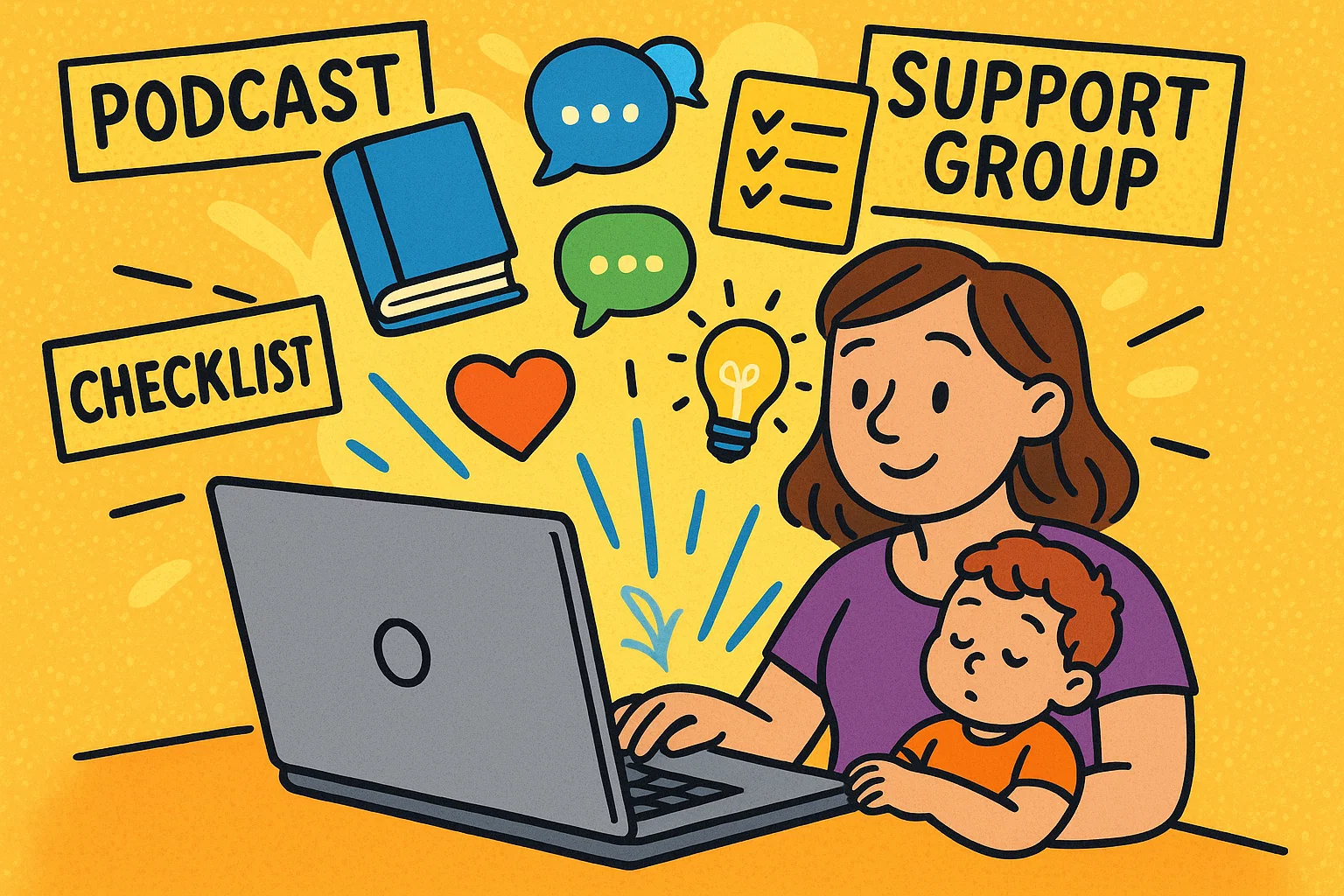Raising children as one parent affects millions of families worldwide, and while the journey comes with unique challenges, it’s absolutely possible to create a thriving home environment. Whether you’re a single mother navigating the complexities of juggling work and family life, or you’ve recently found yourself in this situation, this comprehensive guide offers practical strategies to help you succeed.
Key Challenges Faced by Single Parents
Solo parenting presents a complex web of emotional, financial, and logistical hurdles that can feel overwhelming at times. The unique difficulties that arise when you’re the primary caregiver require specific strategies and understanding.
Balancing Work and Parenting
The juggling act between career demands and raising kids often leaves one parent feeling stretched thin. Without a partner to share responsibilities, managing work-life balance becomes particularly challenging.
Top tips for work-life balance:
- Negotiate flexible working arrangements when possible
- Create clear boundaries between work and family time
- Develop backup child care plans for unexpected situations
- Practice self-compassion when you can’t do everything perfectly
Many parents in this situation report feeling guilty about time spent away from their children, but remember that providing financial stability is also an act of love and care for your family.
Financial Struggles and Budgeting
Single-income households face distinct financial pressures. Managing expenses, child maintenance, and future planning on one income requires strategic thinking and careful budgeting.
| Common Financial Challenges | Potential Solutions |
| Reduced household income | Create detailed budgets, seek additional income streams |
| Higher child care costs | Research subsidized programs, build support networks |
| Emergency fund shortfalls | Start small emergency savings, even $5-10 weekly |
| Limited time for financial planning | Use budgeting apps, automate savings where possible |
Emotional Toll of Raising Kids Alone
The emotional weight can manifest as burnout, stress, and occasional loneliness. These feelings are normal responses to carrying the full responsibility without consistent daily support from a partner.
Signs you may need additional emotional support include persistent exhaustion, increased irritability with your children, or feeling disconnected from activities you once enjoyed. Professional help through counseling or therapy can provide valuable coping strategies and emotional tools.
Building a Positive Relationship with Your Child
Strong parent-child relationships form the foundation of single parent success. When children feel secure in their relationship with their primary caregiver, they’re more likely to develop resilience and emotional stability.
Consistent Routines and Boundaries
Children thrive on predictability, especially when their family structure differs from traditional two-parent households. Establishing structure and routine provides a sense of security and helps children understand expectations.
Essential routine elements:
- Regular bedtime and wake-up times
- Predictable meal schedules including eating a meal together daily
- Consistent rules and consequences
- Weekly family traditions or activities
A solid family routine doesn’t mean rigidity – flexibility within routines allows for life’s inevitable surprises while maintaining overall stability.
Quality Time and Meaningful Bonding
Spending quality time doesn’t require expensive activities or elaborate plans. Some of the most meaningful moments to bond with your child happen during everyday activities like preparing meals together, bedtime stories, or brief check-ins after school runs.
Consider implementing “one-on-one time” where each child receives undivided attention, even if it’s just 15 minutes of focused conversation or play. This practice strengthens your relationship and helps children feel valued and heard.
Active Listening and Communication
Developing positive communication skills helps children feel comfortable sharing their thoughts and concerns. Active listening involves giving your full attention, reflecting back what you hear, and validating your child’s emotions without immediately trying to fix problems.
Encourage open dialogue by asking specific questions about their day, friends, and feelings. Create safe spaces for difficult conversations, and remember that sometimes children need time alone to process before they’re ready to talk.

Time Management Strategies for Single Parents
Effective time management becomes crucial when you’re handling all responsibilities independently. The key lies in working smarter, not harder, and accepting that perfection isn’t the goal.
Creating Daily and Weekly Schedules
Visual schedules help both you and your children stay organized and reduce daily decision fatigue. Consider using color-coded calendars, family command centers, or digital apps that sync across devices.
Scheduling tips for single mums and dads:
- Plan meals and activities weekly, not daily
- Batch similar tasks together (laundry, grocery shopping, meal prep)
- Build buffer time into schedules for unexpected delays
- Include rest and relaxation time as non-negotiable appointments
Prioritizing Tasks and Responsibilities
The Eisenhower Matrix – categorizing tasks as urgent/important, important/not urgent, urgent/not important, or neither – helps focus energy on what truly matters.
Ask yourself: “What happens if this task doesn’t get done today?” Often, you’ll find that many items can be postponed or eliminated entirely, freeing up time for higher-priority activities.
Meal Planning and Household Management
Meal planning and efficient household management can save hours weekly and reduce stress significantly. Simple strategies include preparing larger portions for leftovers, involving children in age-appropriate chores, and accepting that a perfectly clean house isn’t always realistic or necessary.
Consider implementing a “15-minute pickup” routine each evening where the whole family tidies up together, making mornings smoother and reducing weekend cleaning time.
Mental Health and Self-Care Tips
Your wellbeing directly impacts your ability to parent effectively. Self-care isn’t selfish – it’s essential for maintaining the emotional and physical energy needed for successful solo parenting.
Managing Stress and Anxiety
Solo parents often experience higher stress levels due to the constant responsibility and lack of regular breaks. Recognizing stress symptoms early allows for proactive management rather than reactive crisis mode.
Effective stress management techniques:
- Deep breathing exercises during overwhelming moments
- Regular physical activity, even 10-minute walks
- Journaling to process emotions and thoughts
- Mindfulness practices tailored to busy schedules
Professional therapy can provide additional tools and support, and many therapists now offer online sessions that accommodate busy schedules.
Setting Boundaries with Others
Learning to say “no” protects your time and energy for what matters most. This includes declining social obligations that drain you, limiting contact with toxic family members, and establishing clear expectations with friends and extended family about your availability.
Boundaries aren’t walls – they’re guidelines that help preserve your emotional wellbeing and ensure you can show up fully for your children.
Finding Joy in Solo Parenting
Despite its challenges, raising children alone offers unique rewards and opportunities for personal growth. Many develop increased confidence, stronger problem-solving skills, and deeper relationships with their children.
Celebrate small victories, acknowledge your strength and resilience, and remember that you’re providing your children with a model of independence and capability.

Building a Strong Support System
The phrase “it takes a village” holds particular significance when you’re a single parent. Building and maintaining support networks requires intentional effort but provides invaluable assistance during challenging times.
Connecting with Other Single Parents
Finding community with others who understand your experience can provide both practical help and emotional validation. Local groups, community centers, and faith-based organizations often host regular meetups and activities.
Online communities through social media platforms or dedicated apps can offer 24/7 support and advice from parents facing similar challenges. These serve as an important source of support when you need help and information quickly.
Seeking Professional Help When Needed
Recognizing when professional support is needed demonstrates strength, not weakness. Consider reaching out to professionals when you notice persistent sleep problems, changes in your child’s behavior, ongoing conflict with ex-partners, or feelings of depression or anxiety.
Many communities offer sliding-scale therapy options, and some employers provide Employee Assistance Programs that include free counseling sessions. National helplines also provide immediate support during crisis situations.
Co-Parenting or Parallel Parenting Solutions
When relationships with ex-partners are possible, focus on child-centered communication and consistent rules across households. Parallel arrangements – where parents disengage from each other while maintaining separate relationships with children – may work better in high-conflict situations.
Remember that successful arrangements look different for every family, and the goal is your child’s wellbeing, not maintaining a relationship with your ex-partner.
Encouraging Positive Behavior in Children
Parents often worry about discipline and behavior management without a partner’s support. Consistent, empathetic approaches work regardless of family structure.
Setting Age-Appropriate Expectations
Understanding developmental stages helps set realistic behavioral expectations. Younger children naturally test boundaries, teenagers seek independence, and school-age children benefit from increased responsibility and autonomy.
Research typical behaviors for your child’s age group, and adjust expectations accordingly while maintaining consistent standards for respect and safety. It’s important to normalize age-appropriate behaviors rather than expecting adult-level responses from children.
Discipline with Empathy and Consistency
Effective discipline focuses on teaching rather than punishing. Natural consequences – allowing children to experience the results of their choices in safe situations – often teach more effectively than imposed punishments.
Empathetic discipline strategies:
- Acknowledge emotions while addressing behavior
- Offer choices within acceptable parameters
- Use time-ins (sitting together to process emotions) alongside time-outs
- Stay calm during disciplinary moments, even when feeling frustrated
When disagreement arises, take time to cool down before addressing the situation. This helps you respond thoughtfully rather than react from strong emotions.
Celebrating Milestones and Good Behavior
Positive reinforcement motivates continued good behavior more effectively than focusing solely on correction. Celebrate academic achievements, improved behavior, acts of kindness, and personal growth milestones.
Recognition doesn’t require expensive rewards – verbal praise, special privileges, or quality time together often mean more to children than material items.

Financial Planning and Independence
Financial stability provides security and options for families. While money management on one income presents challenges, strategic planning can create stability and even prosperity over time.
Creating a Budget That Works
Successful budgets reflect reality rather than idealistic spending goals. Track actual expenses for several weeks before creating a budget, and include small amounts for unexpected costs and personal enjoyment.
| Budget Category | Recommended Percentage | Solo Parent Tips |
| Housing | 25-30% | Consider shared housing or family support |
| Transportation | 10-15% | Explore public transit, carpooling options |
| Food | 10-15% | Plan meals, buy generic brands, use coupons |
| Child care | 15-25% | Research subsidized programs, trade babysitting |
| Savings | 5-10% | Start small, increase gradually |
Government Assistance and Programs
Various programs exist to support families, including SNAP (food assistance), WIC (nutrition support), Medicaid (healthcare), and housing assistance programs. Financial credits like the Child Credit and Earned Income Credit can provide significant annual support.
Don’t hesitate to utilize available resources – these programs exist specifically to support families during challenging times and can provide crucial stability while you work toward financial independence.
Saving for Emergencies and Education
Emergency funds prevent financial crises from becoming catastrophic. Start with small goals – even $100 can prevent overdraft fees or cover minor car repairs. Gradually build toward three to six months of expenses.
For education savings, consider 529 plans or educational savings accounts that offer advantages. Even small monthly contributions compound over time and demonstrate your commitment to your children’s future opportunities.
Inspirational Quotes and Real-Life Advice
Quotes to Motivate and Empower
“You are braver than you believe, stronger than you seem, and more capable than you imagine.” – A.A. Milne
“Single motherhood is not about being alone – it’s about being enough.”
“The days are long, but the years are short. You’re doing better than you think.”
“If you’re a single parent, remember: you’re not half a family, you’re a complete family with one parent.”
Lessons Learned from Mistakes and Success
Common mistakes include trying to do everything perfectly, avoiding practical help from others, and neglecting personal needs. Successful parents often share these insights:
- Progress matters more than perfection
- Children adapt more easily than parents often expect
- Building support networks takes time but pays dividends
- Self-compassion is as important as compassion for children
- Teaching life skills early helps children become more independent
Expert Tips and Trusted Resources
Best Books and Podcasts for Single Parents
Recommended reading:
- “The Single Mother’s Survival Guide” by Patrice Karst
- “Single Dad Laughing” by Dan Pearce
- “The Single Parent’s Handbook” by Rachel Sarah
Helpful podcasts:
- “Single Moms Talk” – practical advice and community support
- “The Solo Parent Podcast” – expert interviews and real-life stories
- “Single Parent Success” – focusing on thriving rather than just surviving
Parenting Courses and Workshops
Many community colleges, hospitals, and community centers offer classes specifically designed for solo parents. Online platforms like Coursera and Udemy also provide flexible learning options that accommodate busy schedules.
Look for courses covering child development, positive discipline, communication skills, and stress management. Many organizations offer tips for single parents through workshops and support groups.
Recommended Apps and Tools
Organization and scheduling:
- Cozi Family Organizer – shared calendars and to-do lists
- Google Calendar – free scheduling with family sharing options
- Any.do – simple task management
Budgeting and finance:
- Mint – comprehensive budget tracking
- YNAB (You Need A Budget) – proactive budgeting approach
- PocketGuard – prevents overspending
Support and communication:
- OurFamilyWizard – communication and scheduling with ex-partners
- 2Houses – family organization for separated parents
- Crisis Text Line – 24/7 support via text messaging

Final Thoughts on Thriving as a Single Parent
Raising children alone is undoubtedly challenging, but it’s also an opportunity to demonstrate incredible strength, resilience, and love. Your children are learning valuable lessons about independence, problem-solving, and perseverance simply by watching you navigate daily life with grace and determination.
Remember that thriving doesn’t mean having everything figured out or never struggling. It means showing up consistently, seeking support when needed, and celebrating the unique bond you’re building with your children. Single parents often get less stressed once they accept that asking for help is a sign of wisdom, not weakness.
Consider joining our community newsletter for weekly tips, resource updates, and connection with other parents who understand your journey. Together, we can support each other in raising happy, healthy children and creating fulfilling lives for our families.


